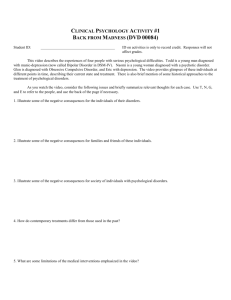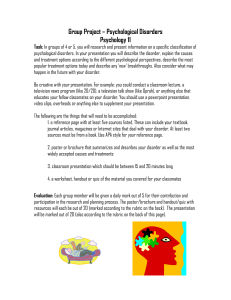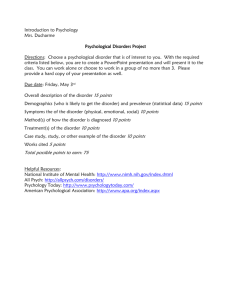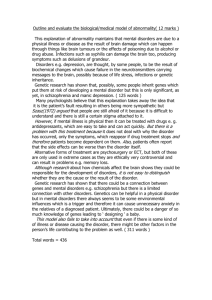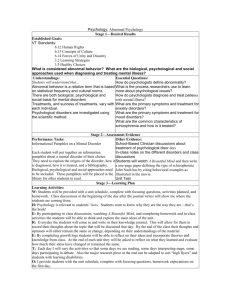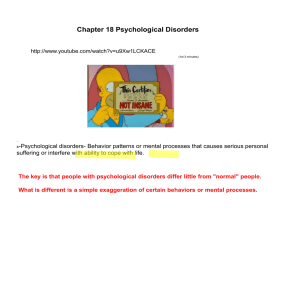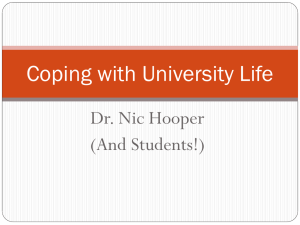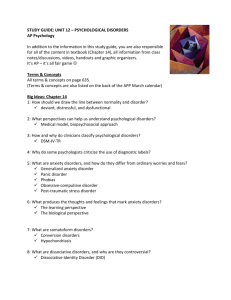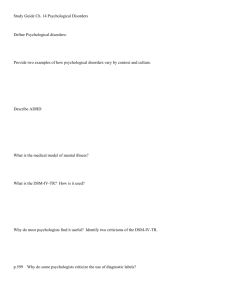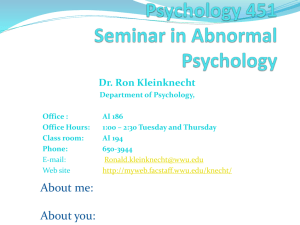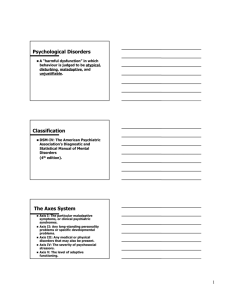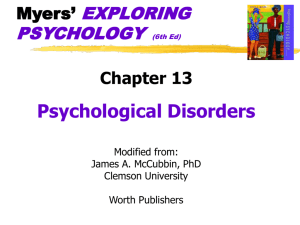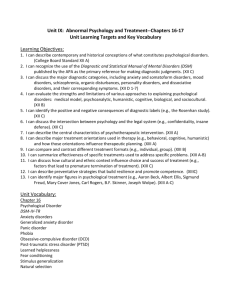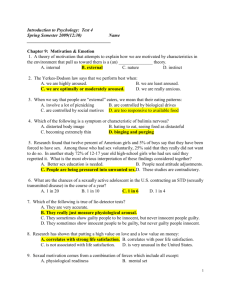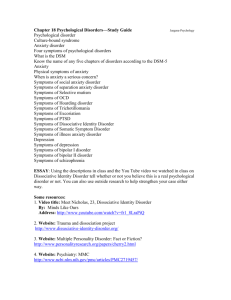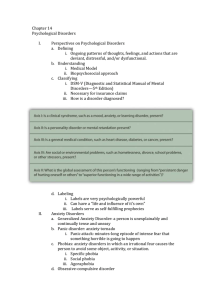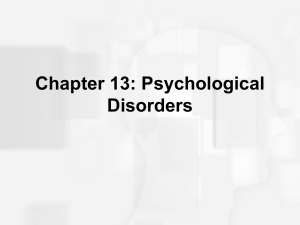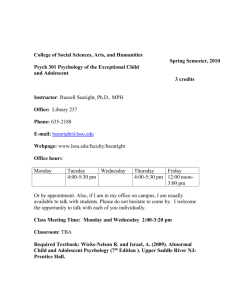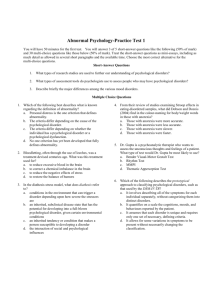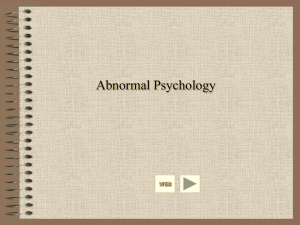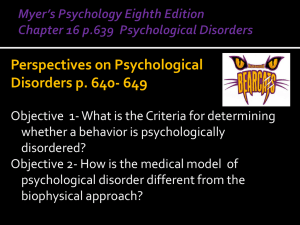PSYCHOLOGY 111: Final Review Study Guide for Winter 2000
advertisement
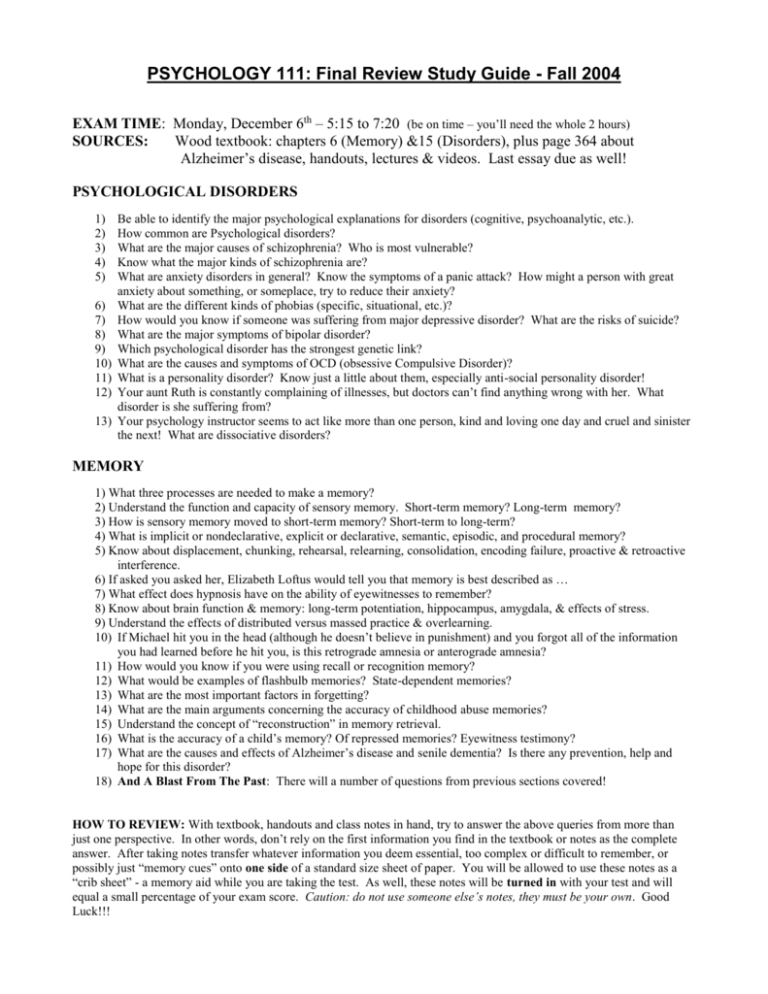
PSYCHOLOGY 111: Final Review Study Guide - Fall 2004 EXAM TIME: Monday, December 6th – 5:15 to 7:20 (be on time – you’ll need the whole 2 hours) SOURCES: Wood textbook: chapters 6 (Memory) &15 (Disorders), plus page 364 about Alzheimer’s disease, handouts, lectures & videos. Last essay due as well! PSYCHOLOGICAL DISORDERS 1) 2) 3) 4) 5) 6) 7) 8) 9) 10) 11) 12) 13) Be able to identify the major psychological explanations for disorders (cognitive, psychoanalytic, etc.). How common are Psychological disorders? What are the major causes of schizophrenia? Who is most vulnerable? Know what the major kinds of schizophrenia are? What are anxiety disorders in general? Know the symptoms of a panic attack? How might a person with great anxiety about something, or someplace, try to reduce their anxiety? What are the different kinds of phobias (specific, situational, etc.)? How would you know if someone was suffering from major depressive disorder? What are the risks of suicide? What are the major symptoms of bipolar disorder? Which psychological disorder has the strongest genetic link? What are the causes and symptoms of OCD (obsessive Compulsive Disorder)? What is a personality disorder? Know just a little about them, especially anti-social personality disorder! Your aunt Ruth is constantly complaining of illnesses, but doctors can’t find anything wrong with her. What disorder is she suffering from? Your psychology instructor seems to act like more than one person, kind and loving one day and cruel and sinister the next! What are dissociative disorders? MEMORY 1) What three processes are needed to make a memory? 2) Understand the function and capacity of sensory memory. Short-term memory? Long-term memory? 3) How is sensory memory moved to short-term memory? Short-term to long-term? 4) What is implicit or nondeclarative, explicit or declarative, semantic, episodic, and procedural memory? 5) Know about displacement, chunking, rehearsal, relearning, consolidation, encoding failure, proactive & retroactive interference. 6) If asked you asked her, Elizabeth Loftus would tell you that memory is best described as … 7) What effect does hypnosis have on the ability of eyewitnesses to remember? 8) Know about brain function & memory: long-term potentiation, hippocampus, amygdala, & effects of stress. 9) Understand the effects of distributed versus massed practice & overlearning. 10) If Michael hit you in the head (although he doesn’t believe in punishment) and you forgot all of the information you had learned before he hit you, is this retrograde amnesia or anterograde amnesia? 11) How would you know if you were using recall or recognition memory? 12) What would be examples of flashbulb memories? State-dependent memories? 13) What are the most important factors in forgetting? 14) What are the main arguments concerning the accuracy of childhood abuse memories? 15) Understand the concept of “reconstruction” in memory retrieval. 16) What is the accuracy of a child’s memory? Of repressed memories? Eyewitness testimony? 17) What are the causes and effects of Alzheimer’s disease and senile dementia? Is there any prevention, help and hope for this disorder? 18) And A Blast From The Past: There will a number of questions from previous sections covered! HOW TO REVIEW: With textbook, handouts and class notes in hand, try to answer the above queries from more than just one perspective. In other words, don’t rely on the first information you find in the textbook or notes as the complete answer. After taking notes transfer whatever information you deem essential, too complex or difficult to remember, or possibly just “memory cues” onto one side of a standard size sheet of paper. You will be allowed to use these notes as a “crib sheet” - a memory aid while you are taking the test. As well, these notes will be turned in with your test and will equal a small percentage of your exam score. Caution: do not use someone else’s notes, they must be your own. Good Luck!!!
